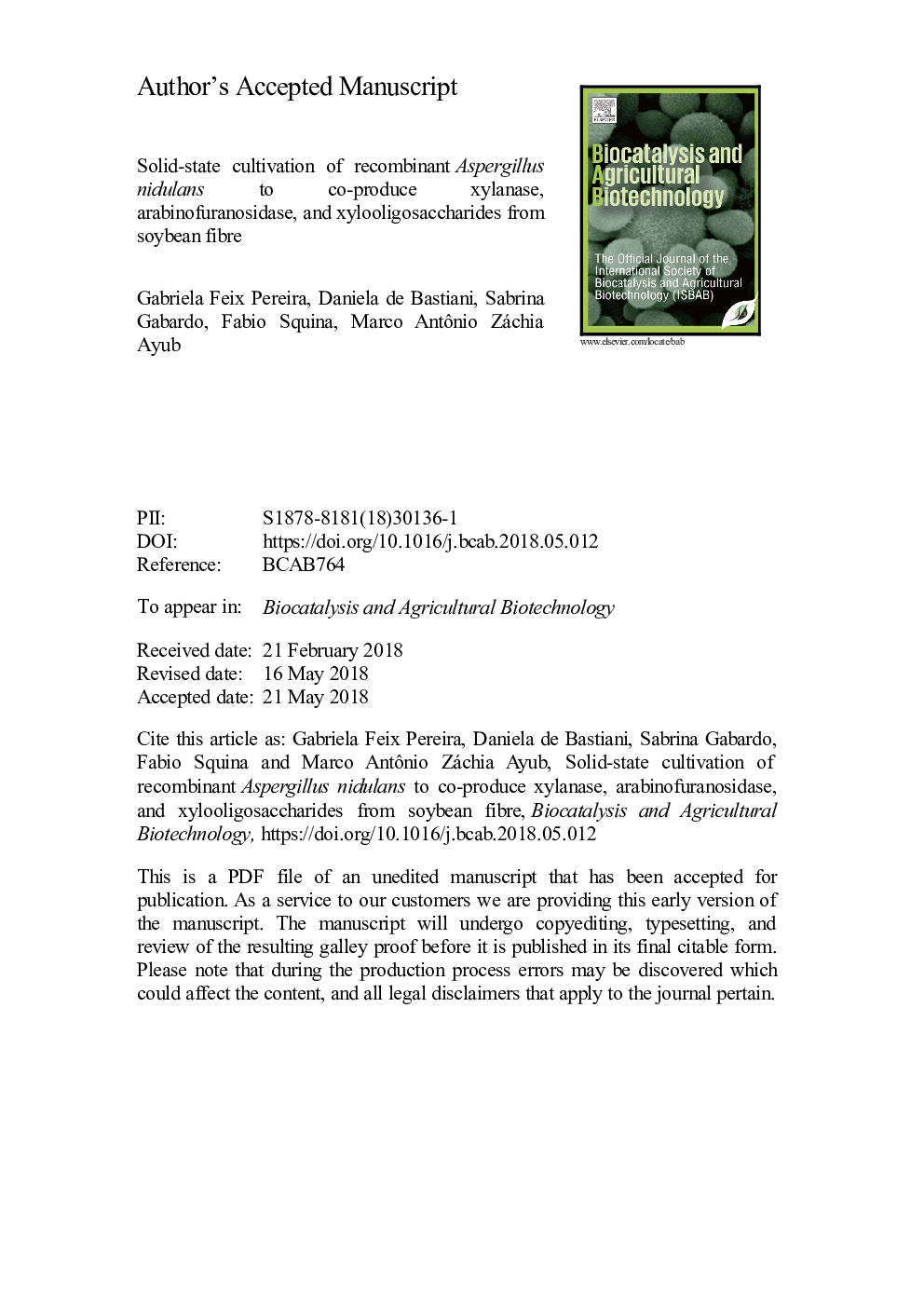| Article ID | Journal | Published Year | Pages | File Type |
|---|---|---|---|---|
| 8405829 | Biocatalysis and Agricultural Biotechnology | 2018 | 38 Pages |
Abstract
Solid-state cultivations of genetically modified strains of Aspergillus nidulans A773, using soybean fibre as substrate, were carried out to produce xylanase and arabinofuranosidase, and these enzymes were subsequently used to obtain xylooligosaccharides using the same agro-residue. First, the best fungi cultivation conditions (moisture content, pH, temperature and addition of maltose) were optimized one-by-one for obtain the crude enzyme extracts. Subsequently, the application of xylanase on soybean fibre to obtain xylooligosaccharides was optimized by central composite design, defining best enzyme concentration and reaction temperature. The best condition obtained (50â¯Â°C and 117 Uâ¯gâ1 of soybean fibre) was used to evaluate the co-production of xylooligosaccharides by the addition of different concentrations of arabinofuranosidase. The highest yield of xylooligosaccharides obtained was 28% (mass fraction of xylan), showing final concentrations (in mgâ¯gâ1 arabino-xylan) of 138.36 xylobiose (X2), 96.96 xylotriose (X3), and 53.04 xylotetraose (X4), in 9â¯h enzymatic reactions. The conversion of arabino-xylans into different xylooligosaccharides suggests the potential to use recombinant A. nidulans A773 enzymes to obtain prebiotics using a sugar-rich, low-cost soybean residue.
Related Topics
Life Sciences
Agricultural and Biological Sciences
Agricultural and Biological Sciences (General)
Authors
Gabriela Feix Pereira, Daniela de Bastiani, Sabrina Gabardo, Fabio Squina, Marco Antônio Záchia Ayub,
